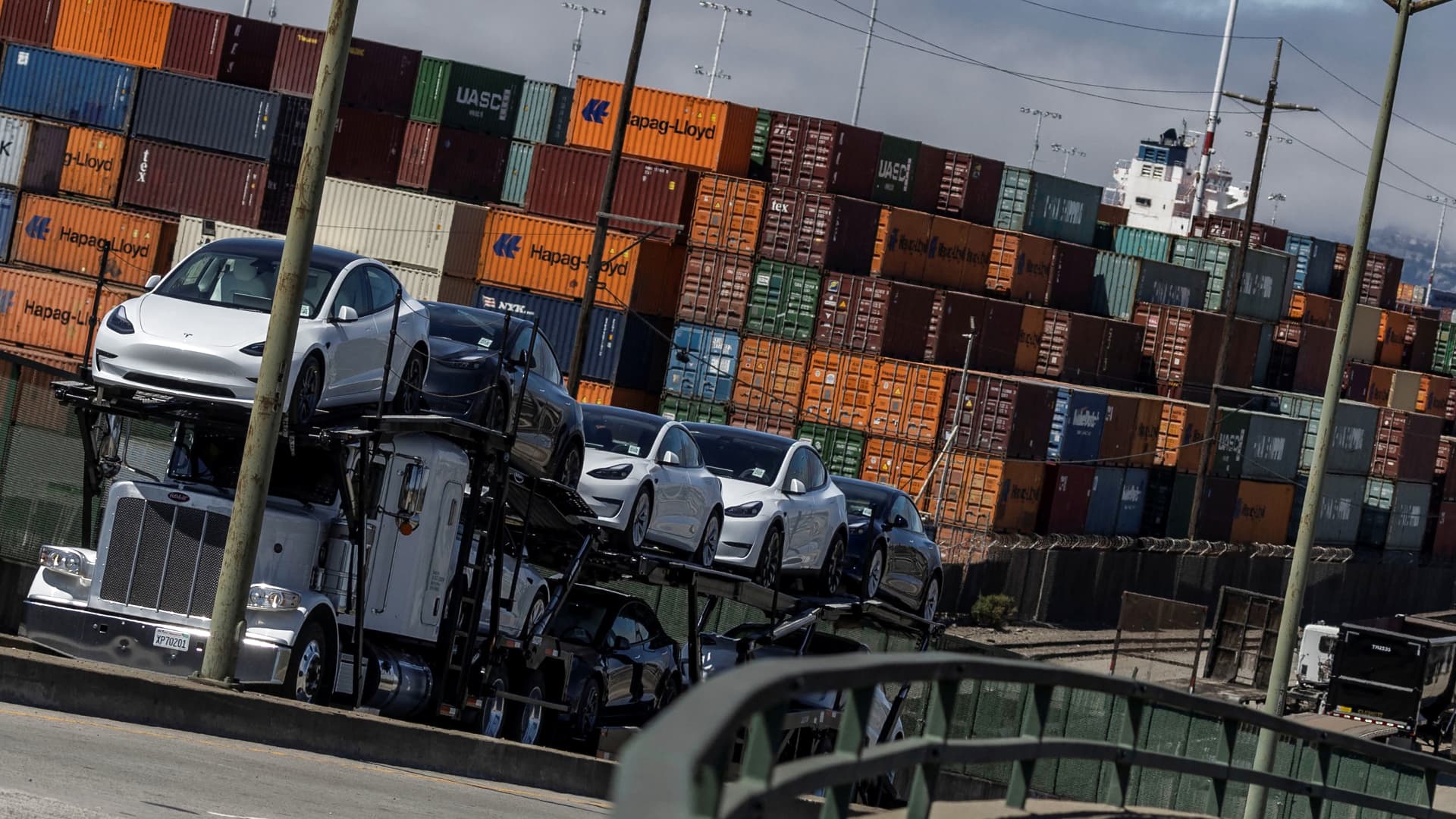
Shipping containers are seen at a terminal inside the Port of Oakland.
Carlos Barria | Reuters
West Coast ports are shutting down as union workers “no show” after a breakdown in negotiations with port management.
The Port of Oakland was shut down Friday morning due to insufficient labor for terminal operations, a stoppage that is expected to last at least through Saturday. A source close to the situation told CNBC the port shutdowns are expected to spread across the West Coast as a result of lack of sufficient labor as workers protest over wage negotiations in contract talks with port management.
Two of the Oakland port marine terminals — SSA, its largest, and TraPac — were closed as of the morning shift on Friday, said Robert Bernardo, spokesman for the Port of Oakland. The majority of imports and exports are processed through those terminals, he said.
While the actions taken by workers are not a formal strike, the source told CNBC to expect stoppages at other West Coast ports as union workers refuse to report for assignments, with operations also reportedly stopping at the port hub of Los Angeles, including Fenix Marine, the APL terminal, and Port of Hueneme, which processes automobiles and perishables — bananas the largest import in that category. The situation remains fluid, with truck drivers being turned away at Los Angeles sites.
The stoppages come at a time when activity at West Coast ports had picked up again after losing volume to the East Coast ports due to concerns about the volatile labor situation.
At the Port of Oakland, total container volume increased for two consecutive months, with port officials optimistic about the upswing. It is the eighth-largest port in the country, importing a wide range of items, from Australian wine and meat, to aluminum from South Korea, and clothing, electronics and furniture from China.
“Given the increase we’ve seen in business over the last couple of months, we are optimistic about a stronger second half of 2023 for the amount of cargo moving through Oakland,” said Port of Oakland Maritime Director Bryan Brandes. “We also anticipate increasing the number of ocean carrier services offered at the Port of Oakland in the coming months.”
“Oakland is a big port for U.S. ag exporters,” said Peter Friedmann, executive director of the Agriculture Transportation Coalition (AgTC). “Fridays are a big day for Ag exports.”
Webcams showing no truck activity at Port of Oakland where lack of workers closed terminal operations
The ports and unions have been involved in contract negotiations over the past year, adding tension to port operations.
On April 20, the Pacific Maritime Association, which represents the ports, and the International Longshore and Warehouse Union, announced they reached a tentative agreement on certain key issues, though they did not disclose more.
People familiar with the negotiation process told CNBC at the time that it represented “major progress.” Prior agreements included maintenance of health benefits. But known issues that still needed to be worked out included wages, as well as safety, automation and pension benefits.
CNBC reached out to the PMA, which represents port management. The PMA did not immediately respond to a request for comment.
The ILWU released a statement on Friday saying that rank-and-file workers had taken it upon themselves to “voice their displeasure” amid the ongoing “arduous fight” with port management. ILWU said cargo workers at ports “remain on the job,” but the port source told CNBC there is an insufficient number of workers overall for port operations to continue. The ILWU statement did not call out wages specifically, but cited “basic requests,” including health and safety, and the $500 billion in profits made by ocean carriers and terminal operators during the past two years.
The last work stoppage at the Oakland port came in early November, when hundreds of clerks walked off the job over a pay dispute.
Any port closure creates backups that impact both the pickup and drop off of products by truck drivers.
Truckers also had a work stoppage related to the AB 5 legislation in California covering classification of truckers as employees, a stoppage which lasted for five days, but took two months to clear up. ILWU did not cross that picket line.
At the Port of Oakland, over 2,100 trucks go through the terminals each day, but none are expected through Saturday with insufficient labor to serve the trucks.







